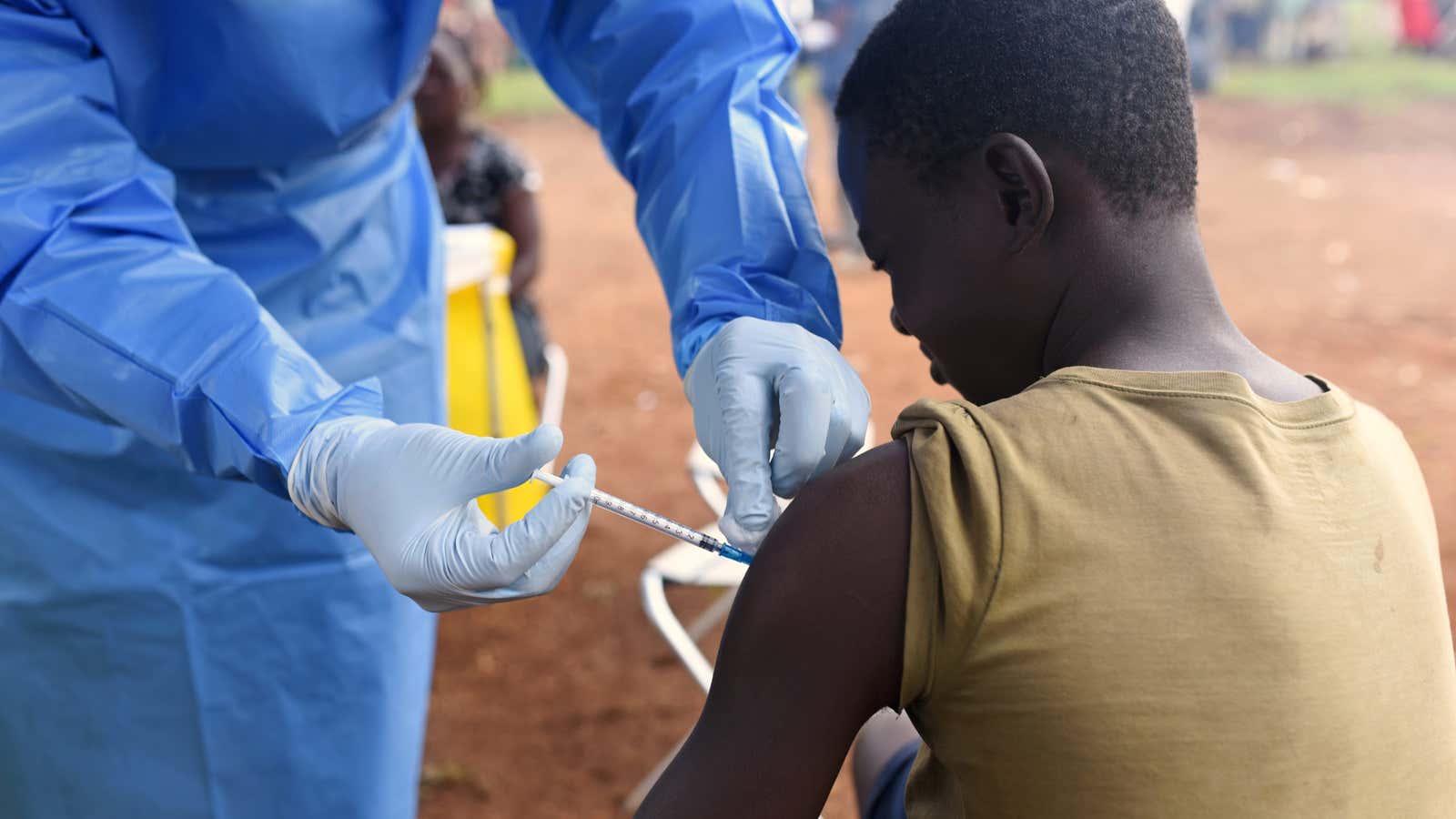Five years after the largest Ebola outbreak in history killed over 11,000 people in west Africa between 2014 and 2016, the virus is back.
A new outbreak in Guinea was reported in mid-February, and at least 18 people have contracted the virus since, including at least four who died. A vaccination campaign has been started to prevent further spread and so far 1,600 people have been vaccinated and the World Health Organization (WHO) is working to help procure more doses, despite the low stocks.
Typically new Ebola outbreaks occur when the virus jumps to humans from the wild, but in this case, it was likely started by a survivor of the 2014-16 epidemic, according to new virus sequencing studies released March 12 by an international team led by the researchers at the University of Conakry in Guinea.
Although it was previously known that survivors of Ebola could be contagious long after their symptoms were over—at least one case was recorded of a man’s semen carrying the virus over 500 days after his infection—the fact that the virus had been dormant for so many years, before replicating again, is a shocking new find. This is because Ebola is an RNA virus, a type of virus not known to remain dormant in the system like the one that causes herpes, Angela Rasmussen, a virologist at Georgetown University, told Science Magazine.
Knowing this possibility brings up a new issue when it comes to controlling future outbreaks. So far, the recommendation for survivors regarding sexual transmission had been to use condoms for at least six months after recovery, but that might not be long enough. Ebola survivors were already subject to much stigma in their communities, and monitoring their risk of spreading the virus without increasing the stigma against them is essential, write the scientists who published the report. This is because, unlike Covid-19, there won’t be a mass vaccination against Ebola.
Lessons for Covid-19
Although Ebola epidemics are very different from the pandemic that has kept the world shut down for a year—Ebola is not airborne, for one thing, and less contagious than Covid-19—this discovery should also be a warning as the vaccination campaign continues worldwide and we move out of the emergency.
A person who had Covid-19 mostly stops being contagious at 20 days, but there have been cases of people spreading the virus even after then, and studies on immunity post-exposure are still ongoing.
More and more people are being vaccinated daily, and millions contracted the virus and acquired immunity (or believe they did). It is understandable they’ll want to stop taking the precautions that have made our lives so miserable—such as social distancing, wearing masks even post vaccines, avoiding gathering—despite the public health recommendation not to do so until herd immunity is reached.
This Ebola discovery should be a warning that the guard cannot be lowered until we are sure there is enough immunity against the virus.




